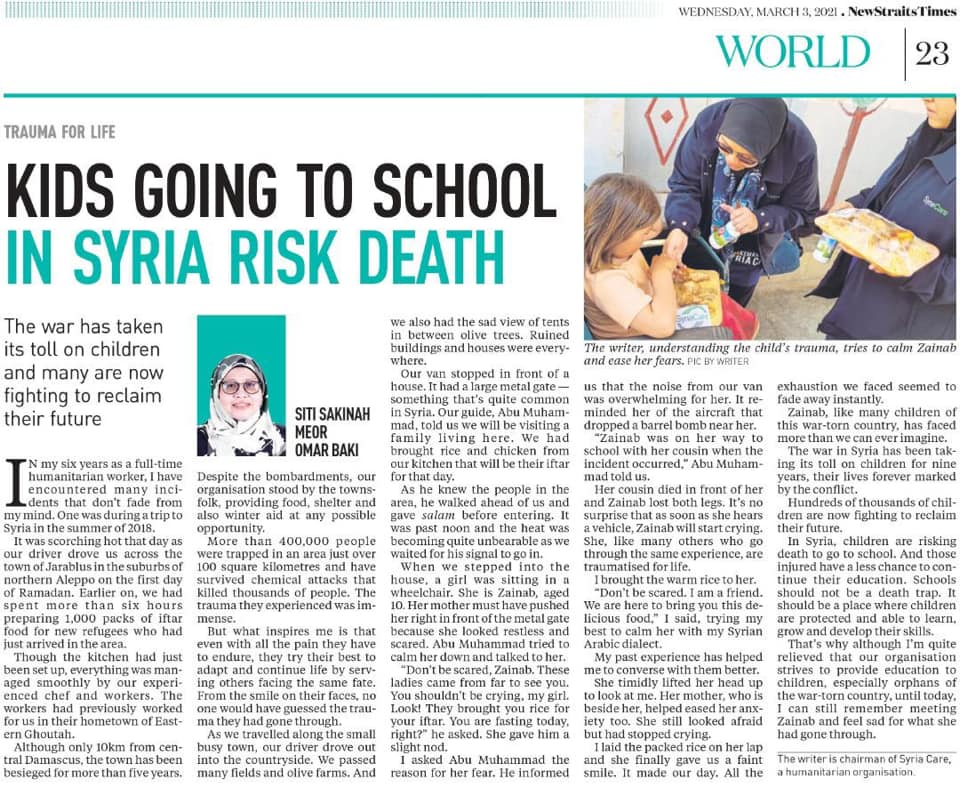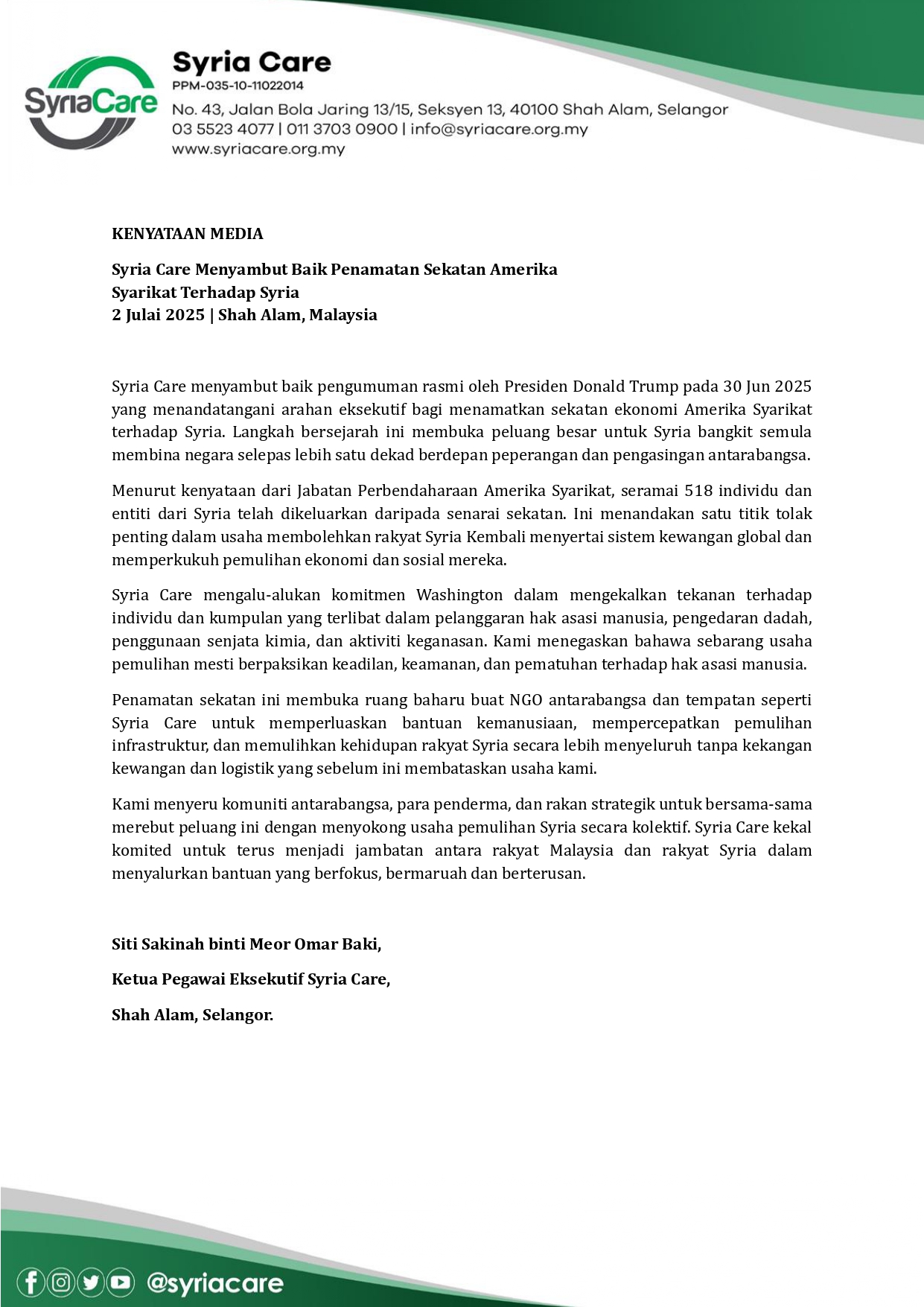6 years as a full-time humanitarian worker, I have encountered many incidents that don’t fade from my mind. And I am more than willing to share with you readers some of these experiences.
One of these incidents was during our trip to Syria in the summer of 2018. It was scorching hot that day as our driver drove us across the town of Jarablus in the suburbs of northern Aleppo on the first day of Ramadan. Earlier on, we had spent more than 6 hours, helping out in one of our kitchens, preparing 1,000 packs of iftar food for new refugees that just arrived in the area.
Though it was on its first day running, everything was managed smoothly by our experienced chef and workers. They had previously worked for us in their hometown of Eastern Ghouta. Although situated only 10 km from central Damascus, it was besieged for more than 5 years. Despite the ongoing bombardment in the area, our organization stood by them, providing food and shelter and also winter aid at any possible opportunity.
These men and more than 400,000 people were trapped in an area just over 100 square kilometres and have survived chemical attacks that killed thousands of people. The trauma they have faced is immense. But what inspires me is that even with all the pain they have to endure, they try their best to adapt to this new area and continue life by serving others facing the same fate. From the smile on their faces, no one would have guessed the trauma they had gone through.
As we travelled along with the small busy town, our driver drove out into the countryside. We passed many fields and olive farms. And the sad view of tents in between olive trees. Besides, that ruined buildings and houses were very inevitable.
As we neared some houses in one of the villages, our van slowed down and stopped in front of a house. It had a large metal gate. Something quite common for houses in Syria. Our guide, Abu Muhammad told us we will be visiting a family living here. We had brought rice and chicken from our kitchen that will be their iftar for that day.
As he knows the people in the area, he went walked ahead of us and gave salam before entering. We waited for a signal from him outside. It was past noon and the sun was at it’s highest and the heat was becoming quite unbearable. I began to have a headache. But as head of the team, I had to proceed.
Abu Muhammad called us in. As we stepped into the house there was a girl sitting on a wheelchair. We were told her name is Zainab aged 10. Her mother who was standing beside her must have pushed her right in front of the metal gate because she looked restless and scared.
Abu Muhammad tried to calm her down and talked to her.
“Don’t be scared Zainab. These ladies came from far to see you. You shouldn’t be crying, my girl. Look they brought you rice for your iftar. You are fasting today right?” and she gave him a small timid nod.
We tried to get closer to her and I asked Abu Muhammad what was the reason for her fear. He informed us that the noise from our van overwhelmed Zainab. It reminded her of the aeroplanes that dropped a barrel bomb on her house that caused her to lose both her legs the year before. He said as soon as she hears any vehicle nearing her house she would start crying. She like many others that go through the same experience are traumatised for life.
I brought the warm rice and stood in front of her. “Don’t be scared. I am a friend. And I am here to bring you this delicious food”. I tried my best to calm her with my knowledge of the Syrian Arabic dialect. My past experience managing this course in Syria has helped me understand them better.
Siti Sakinah binti Meor Omar Baki,
Chairman of Syria Care.
(Currently in Turkey, working)
#misikemanusiaansyriacare12#travelogomma#ommatravels#iamahumanitarianworker#ommawrites




![Kenyataan Media Syria Menuju Masa Depan Lebih Stabil Dengan Gabungan Sdf & Kerajaan Baru[1] Page 0001](https://syriacare.org.my/wp-content/uploads/2025/03/KENYATAAN-MEDIA-SYRIA-MENUJU-MASA-DEPAN-LEBIH-STABIL-DENGAN-GABUNGAN-SDF-KERAJAAN-BARU1_page-0001-scaled.jpg)